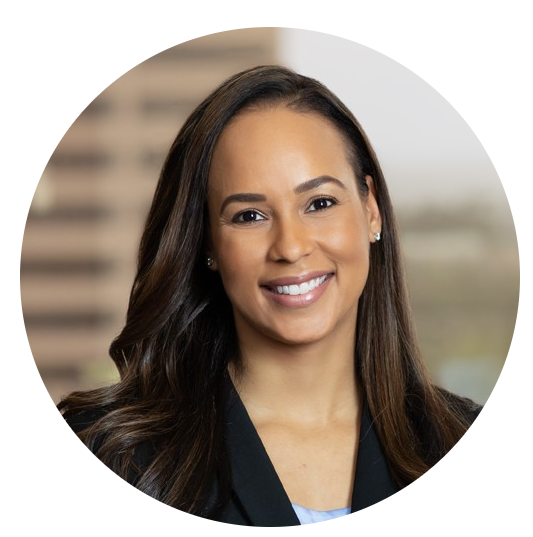The
importance of a corporate deposition is often discounted. It can streamline
litigation and avoid the need to take multiple depositions of corporate
representatives but it can also be damaging if the corporate representative is
not properly prepared. As spokesperson
for the corporation, their testimony can be binding on the company.
Federal
Civil Procedure Rule 30(b)(6) and similar state rules provide the procedure for
a corporate deposition. While this may seem like business as usual for
litigators during the discovery process, its importance is often under appreciated.
In
general, the notice of corporate deposition must “describe with reasonable
particularity the matters for examination.” Fed R. Civ P. 30. The notice must
contain the required specificity and set forth the areas of inquiry so that the
other party can reasonably designate the proper representative to testify. If the notice lacks the required specificity,
courts may grant a protective order preventing the deposition or requiring the
noticing party to narrow or clarify the matters of examination. Edelen v. Campbell Soup Co., 265
F.R.D. 676, 698 (N.D. Ga. 2010). Courts
may also prevent the noticing party from asking questions outside of the areas
of inquiry. Philbrick v. eNom, Inc.,
593 F. Supp. 2d 352, 363 (D.N.H. 2009).
If
the 30(b)(6) corporate notice is proper, then the corporate entity must make a “conscientious
good-faith endeavor to designate the persons having knowledge of the matters
sought by [the party noticing the deposition] and to prepare those persons in
order that they can answer fully, completely, unevasively, the questions posed
. . . as to the relevant subject matters.” Brazos River Auth. v. GE Ionics, Inc., 469 F.3d 416, 433 (5th
Cir. 2006). The designated representative is not required to have personal
knowledge of the areas of inquiry. PPM
Fin., Inc. v. Norandal USA, Inc., 392 F.3d 889, 894 (7th Cir. 2004). The
key is preparation of the witness because producing an unprepared witness is
tantamount to a failure to appear and is sanctionable. Black Horse Lane Assocs., L.P. v. Dow
Chem. Corp., 228 F.3d 275, 304 (3d Cir. 2000). Thus, the designated
representative(s) must be prepared to the extent matters are reasonably
available, whether from documents, past employees, or other sources. Id.
While
courts have made it clear that a designated representative must be prepared to
answer questions concerning the areas of inquiry set forth in the corporate
notice, it is vital that a witness is properly prepared to testify truthfully
and in the best interests of the corporation.
Selection and preparation of the representative is crucial because the
corporate representative’s testimony is binding on the corporate party i.e.
whatever the representative/deponent says can be used against the corporate
entity. Keepers, Inc. v. City of
Milford, 807 F.3d 24, 34, (2d Cir. 2015). Corporate representative’s
unfavorable testimony will be difficult to correct or controvert through other
testimony.
The
personality of a corporate representative should be considered in the selection
process. An ideal corporate
representative is calm, not rattled by tough questions, and preferably one who
has been deposed before. Counsel should meet with company representatives in
selecting the representative(s) that can perform under pressure. Another
consideration is whether multiple corporate representatives are needed to
answer the varying areas of inquiry.
After
the representative/witness is selected, it is crucial to meet face to face with
the witness and explain the corporate deposition and the potential outcomes. Explain
the ongoing litigation and make sure that the witness understands the company’s
position, claims, or defenses. It is
also a good idea to explain the key witnesses. Advise the witness that he/she is answering on behalf of the company and
any personal observations may be irrelevant when answering on behalf of the
company.
Be
sure to stress the importance of preparation and advise the witness that if
he/she is unable to answer questions related to the areas of inquiry, the
corporation could be subject to sanctions or a second deposition. Tell the witness that he/she should plan on
multiple prep sessions to properly prepare. Planning to meet with a corporate representative once on the day before
the deposition is a bad idea and may result in failure. It is also helpful to work with in-house
counsel in scheduling several prep sessions/meetings with the witness to
discuss the topics, key documents, and pleadings. With the use of various communication
platforms, such as Zoom, Microsoft Teams, GoTo Meeting and the like, this
process can be less burdensome and provide the opportunity for several
sessions.
At
a minimum, counsel should go over the areas of inquiry with the witness and
have the witness review all available documents related to the areas of inquiry,
all relevant pleadings, discovery (responses to interrogatories, requests for
admissions, and requests for production), and any key documents. Unfortunately, this is not a “quick” process
and depending on the nature of the case, can require several sessions/meetings
with the witness.
Preparing
a deposition notebook/binder (or electronic equivalent) is a useful preparation
tool for counsel and the corporate representative. The binder should include
the areas of inquiry and the documents that the representative/witness should
review. If possible, arrange the deposition binder and any relevant documents
by the areas of inquiry. Advise the
witness that he/she does not have to memorize any documents, but the witness
should be familiar with key documents and pleadings. In addition to asking the representative to
review the documents, counsel should walk the representative through each area
of inquiry and the documents corresponding to each area.
Another
useful preparation tool is conducting a mock deposition or reviewing sample questions
that you anticipate will be asked by opposing counsel. Spend time questioning
the representative about the areas of inquiry. Test the representative’s
knowledge so that the witness has an idea of what will be asked. As counsel, you should also be prepared to
object to any questioning outside of the areas of inquiry or related to privileged
matters and explain this process to the representative. Counsel should also
explain the importance of fixing prior errors or misstatements in testimony
while the deposition is ongoing. If a witness is properly prepared, the witness
should not be surprised and can remain calm and perform in the best interests
of the company.
However,
it is important to remember that there is no substitute for preparation. “By
failing to prepare you are preparing to fail.” – Benjamin Franklin.
Author Andrew G. Vicknair is an attorney with D'Arcy Vicknair, LLC in New Orleans, Louisiana. Andrew focuses his practice on intellectual property, commercial, and construction disputes and regularly handles claims related to construction defects, payment disputes, design issues, and general disputes among subcontractors, owners, and general contractors.



















